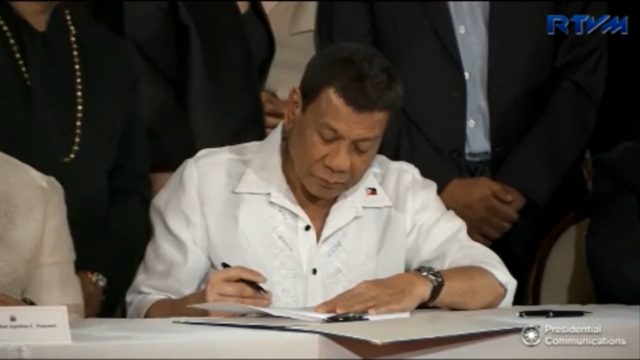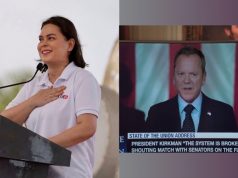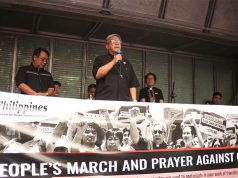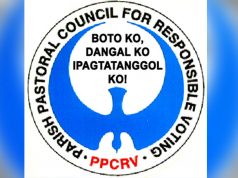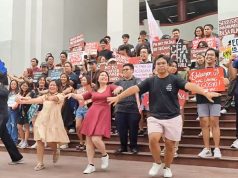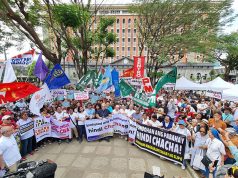MANILA, Philippines – What will happen to the constitutional bodies like the Commission on Elections (Comelec), Commission on Audit (COA) and Civil Service Commission under a transition government proposed with the overhaul of the Constitution?
President Rodrigo Duterte will have control of these bodies and will have the power to appoint their members, former congressman and Bayan Muna chairperson Neri Colmenares said Tuesday.
Resolution of Both Houses No. 8 (Constituting the Senate and the House of Representatives of the 17th Congress into a Constituent Assembly to propose revisions of the 1987 Constitution by adopting a federal form of government) authored by Pampanga Representative Aurelio Gonzales and ABS partylist Rep. Eugene Michael De Vera proposed in Article XVIII (Section 12) that incumbent members of these three bodies will continue in office for one year after the ratification of the new Constitution.
The resolution proposed that the new constitution be ratified in May 2019.
“If the proposed Constitution under Resolution of Both Houses No. 8 is ratified during the barangay elections, members of the COMELEC, COA and Civil Service will be forced to resign by 2019. President Dueterte will then have the power to appoint all members of these independent constitutional commissions,” Colmenares said.
In effect, this means, he added, that “those who will oversee our elections, audit all government contracts and decide on the removal of government employees will all be appointees of President Duterte.”
Colmenares warned that the new Constitution cuts all the terms of all incumbent Commissioners “practically abolishing COMELEC, COA and CSC.”
“The problem is President Duterte is given the power to appoint all fifty-seven (57) members of these supposedly independent commissions including their chairmen,” he said.
“Considering that Article XVIII, Section 6 of RBH No. 8 dissolves Congress and also grants President Duterte legislative powers to issue laws, he will be a powerful president indeed,” Colmenares added.
Article XVIII Section 6 of RBH No. 8 also provides that: “Upon ratification of this Constitution, the present Congress shall be dissolved and the incumbent President shall exercise legislative powers until the first Federal Congress is convened.”
“Previous Charter-change attempts have always been about term extensions and abolishing term limits. This cha-cha is worse because it creates a super-powerful president in President Duterte,” he said.
“It will be like the martial law regime of Marcos again. Approval of the proposed cha-cha will pave the way for dictatorship,” he added.

